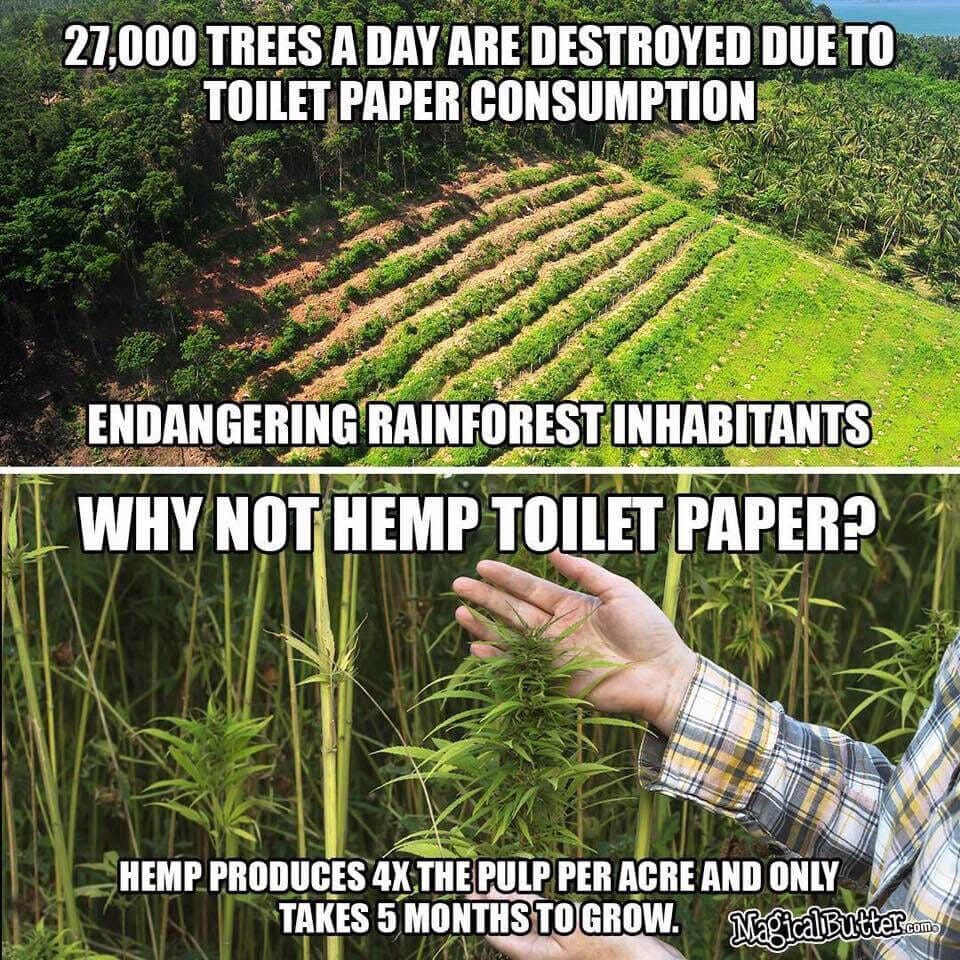Because any regulation or policy passed as “law” by our government to control the masses quite irks my soul, even to the extent that it sometimes invokes the infamous Clint Eastwood eye twitch, this article will be somewhat difficult for me as I delve into the mindset of the matrix our society has become. Meaning, I will discuss how the marijuana and hemp industries need to unite to pass legislation (gulp) that will benefit them both.
One thing that is widely overlooked is that both hemp and marijuana come from the same cannabis sativa plant species. They are both filled with various beneficial properties such as cannabinoids, but they both also contain that “oh, so evil” cannabinoid known as THC.” You know, the one that people fear the most because it can (gap), get you high. (Considering the matrix we’ve all been subjected to, are “they” really surprised so many people seek to reach that high? To be honest, I’M surprised the entire population isn’t 24/7 at this point). And, let’s also be honest with the fact that no man, government, etc. has the right to tell you what you can or cannot partake in.
Alas, I digress…Let’s get back to the importance of unity.

Both industries are guilty of siding with amendments in bills and policies presented in the past that will benefit their own interests while in turn, putting a damper on the other. We are to the point where cannabis has been “illegal” for so long, we want that quick fix without looking out into the future. This is where collaboration between hemp and marijuana companies becomes crucial.
somewhat side by side while catering to different customer bases. Initially, hemp focused mainly on non-psychoactive products, while marijuana’s focus remained on those with higher THC content. However, as the cannabinoid market continues expanding and consumers search for diverse product options to suit their individual needs, it’s becoming obvious that lines between hemp and marijuana are beginning to blur.
Wouldn’t it make sense to join forces at this point to reach a common goal?
By coming together, both industries can create a stronger, more cohesive voice in order to advocate for comprehensive regulations by leveraging the fact that Congress has already legalized THC in hemp. This means hemp already has a foothold in the legal door that regulates cannabis. Showing a unified front would allow both industries to present a very clear and consistent message to those who consider themselves “lawmakers” about the need for a regulatory framework that would encompass all cannabinoid products whether they be derived from either hemp or marijuana. This type of collaborative effort would lead to developing standards that would ensure, not only product safety, but would also address the concerns of those that advocate for public health.
The FDA claims to lack the authority to regulate hemp products until Congress provides “a new regulatory pathway.” And so, for the past six years and, this regulatory limbo has left consumers exposed to low quality products and unscrupulous hemp brands that make unverified claims as to their potential benefits which undermines the trust within the entire industry. The lack of FDA regulations for hemp products has created a bad landscape for cannabinoids that is confusing and incomplete, on the state and federal levels. This isn’t a problem caused by the hemp industry itself…It all boils down to the lack of action by the good old Food and Drug Administration. This has set marijuana and hemp interests against each other at a time when they should be unified.
For example, full-spectrum CBD products, which contain a range of cannabinoids, including THC below the 0.3 percent level, offer significant health benefits beyond what isolated CBD can provide. However, with the absence of a clear regulatory framework on finished packaged goods prevents hemp companies from marketing these products effectively. Thus, we find ourselves navigating a complex web of state-level regulations with confusing terms and conditions. Defined by Congress, hemp IS cannabis because of its THC content. Therefore, when marijuana interests attack hemp in Congress or vice versa, it weakens the collective ability to legalize and regulate cannabis. Neither industry can win if the divide continues.

Another example would be when major marijuana groups aligned themselves with prohibitionist organizations to support Rep. Mary Miller’s amendment in the Farm Bill and the corresponding agricultural appropriations bill. This would have recriminalized all hemp products that contained any amount of THC, even naturally occurring THC below 0.3 percent. At the same time, the argument goes both ways. Hemp companies also need to stop opposing marijuana reform. This, my friends is another aspect of the matrix mindset. People can’t seem to see beyond their own objectives. Perhaps, if they did, they would be able to see the benefits of supporting one another.
What if?
What if these industries decided to come together? What if they joined forces to create a regulatory framework for all federal cannabinoid products? As more cannabinoid products become legal, there would already be a framework in place to guide them to consumers in a safe manner that would be less of a burden than the current regulatory system in place today.
In the end, legalization by Congress is only half the battle. Getting appropriately regulated after getting legalized by Congress could be even more difficult, hence the need for a framework to be in place. It’s past time for both industries to put their “common sense” caps on in order for them to reach a collective end goal, don’t you think?

